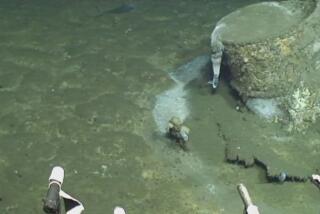Study Calls for Medical Waste Policy
- Share via
WASHINGTON — The summer of 1988 was ruined for many beach-goers by reports of hypodermic needles, syringes and other medical wastes washing ashore, particularly in New Jersey.
But nearly three years later, the nation still lacks a comprehensive or clear policy for regulating the disposal of medical waste, according to a congressional study to be released today.
The Office of Technology Assessment said the nation’s response to the medical waste problem is marked by “confusion and inconsistency.” No single federal agency has been put in charge of regulating medical waste, it said, and officials disagree on the most effective means of disposing of the debris generated by hospitals, doctors’ offices and medical laboratories.
The Environmental Protection Agency estimates that hospitals generate 3 million tons of infectious waste each year. Most hospitals properly dispose of their waste, usually by incinerating it.
Officials suspect that most of the waste that is not handled properly comes from small facilities, such as medical labs and doctors’ and dentists’ offices. And because of the AIDS epidemic, the hazard posed by contaminated blood or infected needles has grown immeasurably.
The medical debris that washed ashore in New Jersey was believed to have originated at labs or doctors’ offices that incorrectly threw their syringes and other waste into the trash. Later, the material apparently fell into the water as barges from the New York area hauled the trash to landfills.
“We believe it was mostly the mishandling of ordinary trash,” EPA spokeswoman Robin Woods said.
The EPA is in the midst of a two-year study in 10 states, mostly in the Northeast, to identify the sites where medical waste is generated and the methods used to dispose of it. In addition, many states have stepped up their own regulation of medical waste since 1988.
But the congressional study says a single federal agency should be charged with setting a clear national policy. Currently, the EPA, the federal Centers for Disease Control and the Occupational Safety and Health Administration have some responsibility for regulating or studying the medical waste problem.
“Any remaining confusion over government positions . . . could be eliminated if Congress designated a lead agency to coordinate and clarify the federal government’s position on medical waste issues,” the report says.
The report also recommends that medical facilities look into disposal methods other than incineration because of concerns over air pollution. It notes that infectious waste can be steamed or “microwaved” as an alternative to incineration.
More to Read
Sign up for Essential California
The most important California stories and recommendations in your inbox every morning.
You may occasionally receive promotional content from the Los Angeles Times.














